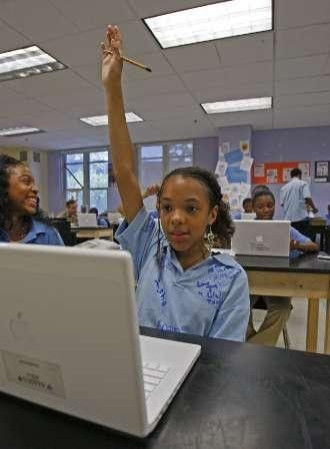New Digital Textbook That Adapts to Your Level of Knowledge as You Read
A Digital Textbook Will Launch in Two Years That Will Change The Way Children Learn

A new digital textbook that was introduced to the students in Houston, Texas is very different from any other textbook one would have ever come across in the past. It is the first digital schoolbook in which lessons are personalized.
The book creators wanted to change how students learn from text books. In the past, one had to raise their level of understanding and strive hard to learn complicated chapters in the book, but this book uses artificial intelligence to personalize lessons. Richard Baraniuk, director of the OpenStax project at Houston's Rice University, who is behind the books said, "We want to be able to create the perfect book for every person. Ultimately, we want a system that turns reading the book into an exploration of knowledge".
For the development of this digital text book OpenStax analysed the students from 12 U.S. schools, they sought to understand how these students used their books in their studies. They examined their scores in the tests. The research went on for three years. The research is now used to train machine learning algorithms and enables the biology and physics digital textbooks to understand individuals and adapt to their levels. The app works in a simple manner, if a user is unable to understand the chapter or a particular page, the book will provide additional information, ask more practice questions and emphasize more on the chapter. This will increase their concentration and their ability to retain what they have studied for a longer period, the developers said.
Richard Baraniuk, founder of OpenStax College, the higher education division of OpenStax explained the working of the app. It is similar to how Netflix or Amazon functions. Netflix suggests movies on the basis of what you have already watched and Amazon recommends books in the same manner. The digital text books also work on the same lines, the K-12 adaptation he specified, uses "machine learning within digital texts, so data is gathered and patterns recognized that will interpret a user's behaviour".
Richard Baraniuk, founder of OpenStax College, the higher education division of OpenStax stated that they have received $9 million from the Laura and John Arnold Foundation to introduce these textbooks in high schools.
Those kinds of predictive algorithms can be applied to education, but "we are also bringing cognitive science models about how the brain actually works, how students learn, how they forget and how ideas get into memory", he said.
OpenStax have created physics and biology textbooks and aim to produce 25 textbooks for subjects that have the highest number of takers in universities. "The expectation with the K-12 effort is that we will be able to develop [digital texts] using a similar model to produce books for the high school market", he said.
Though it is a very unique and pan student initiative, Ben du Boulay, who works on artificial intelligence at the University of Sussex, U.K., said that the success would depend on the teachers. Teachers also could use the app and find the areas students have to work on. There will be a mutual benefit of the teachers and the students.
Universities have already begun showing interest in the new technology and his non-profit texts have attracted non-profit publishing houses. He also informed in an interview that five Houston area high schools will incorporate these textbooks in their curriculum. The app is going to be launched in the year 2016-2017.





















